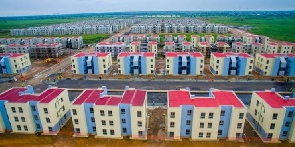Accra, Jan. 21, GNA - The annual plenary meeting of the Strategic Partnership with Africa (SPA) ended in Accra on Friday with a resolve to improve the quality of support through better alignment of aid assistance programmes, particularly budget and sector-wide support, to national poverty reduction strategies.
The meeting also resolved to reduce the transaction costs of the assistance, which has been monitored by SPA working groups and proved to be unique peer pressure tools for improving support. High-level Government of Ghana officials, including the Minister of Finance and Economic Planning and delegates from 11 other African countries, attended the meeting.
More than 20 development partners also participated in the meeting, including African Development Bank (ADB), New Partnership for Africa's Development (NEPAD), United Nations (UN), European Union (EU), United Kingdom, United States, Germany and Japan.
The World Bank Vice-President for Africa, Mr Gobind Nankani, chaired the Accra SPA meeting.
According to a statement issued by the World Bank Country Office in Accra, the meeting discussed the priorities and new work programme for the next phase of SPA 7, programme, which begins this year. Other issues discussed include strengthening the poverty reduction Strategies, especially with respect to accelerated growth with regard to external financing.
The importance of capacity development and role of development partner support, country level partnership, harmonisation and alignment of external support and country-led strategies and priorities, use of country processes, reduction of transaction costs were also discussed. The SPA started 15 years ago and comprised the major bilateral and multilateral donors to Africa, including the WB, EU, British Department for International Development, ADB, UN Economic Commission for Africa, UN Development Programme, NEPAD and 12 African countries.
There is intensified international interest in supporting African-led efforts to accelerate progress towards the Millennium Development Goals (MDGs). There is also increased focus on expanded growth, trade and investment, increased quality and quantity of aid.
General News of Saturday, 21 January 2006
Source: GNA
















